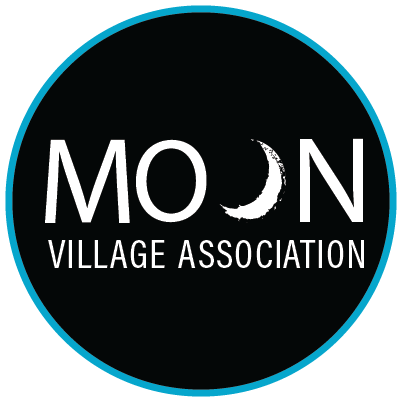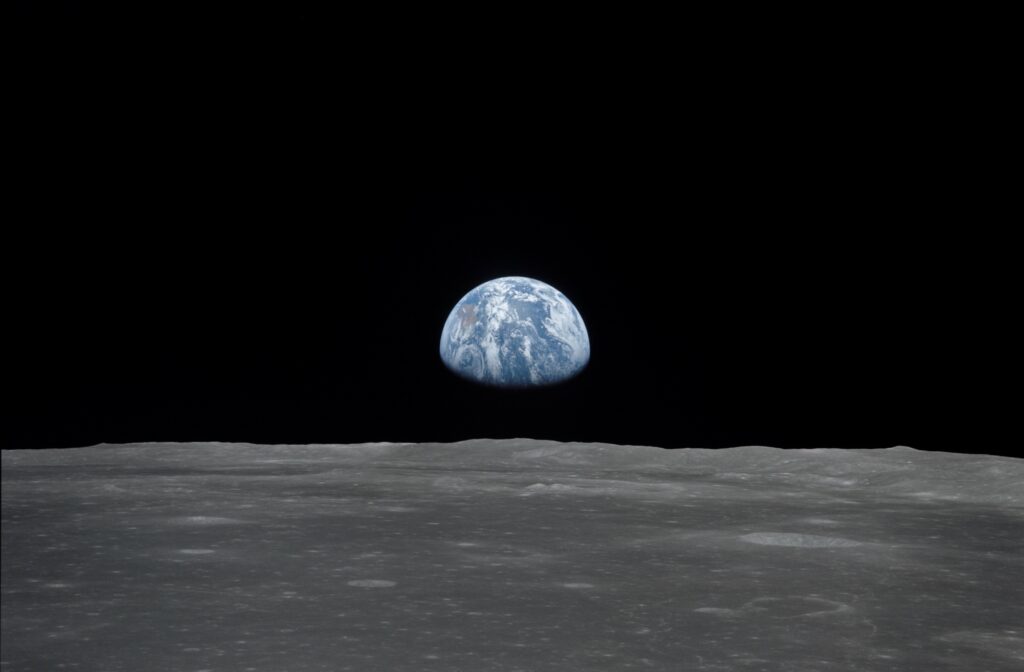The Moon is again a target in the ambitions of many space actors. Some look at it with a sense of national prowess, some as an everlasting individual aspiration, some in pursuit of a commercial return, and a few others, like the Moon Village Association (MVA), as an opportunity to inspire new generations—those for whom the accomplishments of Apollo are just another significant moment often accounted by their parent’s distant memories—while reminding older generations of the benefits of thinking of humanity as a collective enterprise.
As a non-governmental organization based in Vienna, the MVA aims to become a link between government, industry, academia, and the general public to facilitate and enable conversations and plans around responsibly exploring and sustainably expanding humanity’s footprint on the Moon. Among many of its activities, the MVA currently holds permanent observer status at the United Nations Committee on the Peaceful Use of Outer Space (UNCOPUOS). Based on the figures reported on its website (https://moonvillageassociation.org/), the MVA counts at the time of writing with approximately 600 individual and 33 institutional members from more than 50 countries.

Given the renewed prevalence of the Moon and as part of the effort of bridging interests from multiple actors, the MVA founded in 2019 a new program aimed at fostering the development and launch of payloads to the lunar surface and its vicinity. With this program, the so-called Payload Project, the MVA envisions to create a framework that enables a series of missions to the Moon as a way to foster global cooperation and to continue inspiring the general public.
EPFL, led by the EPFL Space Center (eSpace) together with Professor Edoardo Charbon and Ph.D. student Minglo Wu from the Advanced Quantum Architecture (AQUA) Laboratory, has been recently provided with the opportunity to fulfill a key role as payload developer in MVA’s maiden mission to the Moon.
The project, currently under discussion between the MVA and EPFL teams, could result in EPFL flagship endeavor to fly our very own scientific instrument all the way to the surface of the Moon.
The Mission
The payload EPFL will develop for MVA’s first Payload Project mission will consist of an optical camera. Once on the surface of the Moon, this camera, in addition to other scientific and commercial instruments that may be flown alongside, will be used to record images and potentially stream video of our home planet with the goal to allow people from anywhere on Earth to experience what’s known as the overview effect.

Often portrayed in astronauts’ post-flight statements and memoirs, the overview effect is a psychological effect caused when seeing Earth from space resulting in an unavoidable sense of unity and connectedness. There is no better moment than the present to attempt to recreate this global sense of cooperation and communion when humanity is still facing the consequences of a global pandemic. The images and other scientific data obtained during the mission will later be used for specific scientific and outreach campaigns yet to be fully defined alongside the MVA mission team.
Beyond MVA’s mission objective of reenacting the overview effect, current discussions are centered around the possibility to expand the scope of use of the camera for new scientific investigations. At eSpace, we believe this to be a great opportunity for those at EPFL aiming to perform their own experiments under interplanetary and lunar environmental conditions.
The consortium of EPFL labs that will work on the development of the lunar camera is currently being formed. Details about the mission, its timeline, and technical specifications for the payload are still being defined and updates will be made public soon.
An information session for interested EPFL professors was recently held. You can rewatch this session below.
For more information about the call or the mission, don’t hesitate to contact the project responsible (david.rodriguez@epfl.ch).